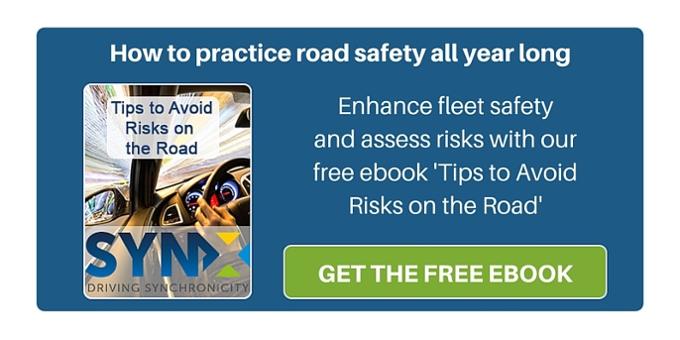
Summer 2018 is here, and it is certainly very apparent in Ireland and the UK, even if it is less so in other parts of Europe. In the UK we are expecting to hit 30 degrees and more. Ireland is also experiencing some very summery weather with unusually low rainfall and a couple of heatwaves possible for the upcoming few weeks.
While we do not expect the kind of sweltering heat that is typical of other countries, which invariably affects the vehicle and air conditioning performance, there are still actually a few things that drivers and employers should bear in mind while driving for work in the summertime. If you want to check that your team is prepared for real summer conditions, read on.
#1 - Summertime/holiday time part I. In the summertime schools close and people go on holiday. With the increasingly nice weather there will surely be more opportunities for everyone to hit the roads and travel, so it stands to reason that there will be increased traffic including cyclists or pedestrians. Make sure you plan enough time for your work journeys and anticipate potential peaks—having a look at the weather forecasts is a good idea in order to predict traffic levels, and cross-checking it with our Traffic option (powered by Google Maps) on the Live Map in SynX would be even better! As for the intensive pedestrian and cyclist traffic, make sure your drivers anticipate them and practice defensive driving.
#2 – Summertime/holiday time part II. Holiday time often equates to relaxation, and this can have an impact on professional drivers but also other drivers on the road, though in a different way. Those who are on holiday might feel complacent and drive with more abandon, or if stuck in traffic congestion (or not! As the case may be) they can become more prone to distraction due to the use of mobile devices. Professional drivers should be less distracted if in possession of the proper training and/or subject to a comprehensive fleet policy but still might need to be extra cautious; so the key phrase here again is “defensive driving”. Defensive drivers are able to avoid dangers on the road by using their safe driving skills: planning ahead for the unexpected, being able to control speed or react to other drivers without making assumptions about their behaviour are some of these principles.
#3 - Make sure your vehicles are recovered from winter wear and tear and ready for the summer. During winter, due to the extreme weather conditions, your vehicles might be subject to excessive pressure and wear and tear caused by winter driving. In the summertime, on the other hand, brakes and tyres might be significantly worn because of the increased traffic and consequent congestion and the slower driving. Make sure your vehicles are properly checked and prepared and focus on these two items and then give us a shout if you need to arrange your daily vehicle checks—our walkaround check app is definitely up to the job!
#4 - Coping with driver fatigue. The possibility of increased time spent on the road and also the possibility of increased temperature can lead to tiredness and stress. Keep it in mind when preparing your team for the summertime and remind them of the need for appropriate rests as well as the rules for driving hours.
This is what we advise companies to bear in mind when driving in the summertime—would you add any other points?



